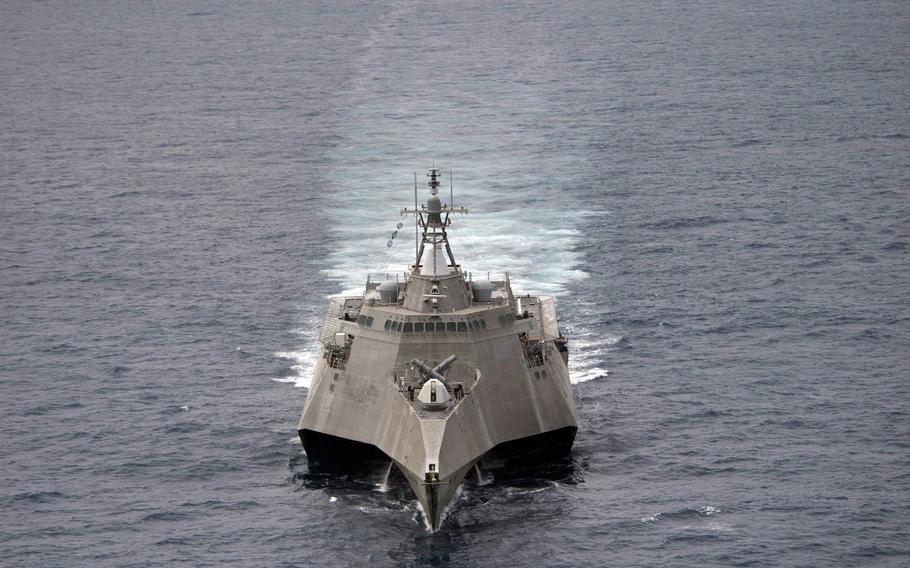
The USS Coronado, a littoral combat ship, conducts drills in the South China Sea, Feb. 1, 2017. (Amy Ressler/U.S. Navy photo)
The United States challenged the maritime claims of allies and rivals alike with freedom-of-navigation operations aimed at 22 countries last year, according to a Defense Department report released Monday in Washington.
Operations aimed at Chinese claims in the East and South China seas have grabbed the most attention in recent years because of China’s construction and militarization of several artificial islands there – moves that have stoked tensions with neighboring nations and Washington.
The U.S. challenged Chinese claims on five aspects of international law in the air and sea during fiscal year 2016, more than any other country on the list.
However, the U.S. also challenged excessive claims by Japan, South Korea, Thailand and the Philippines, all of whom are its security allies in the Asia-Pacific region.
The FON program “is comprehensive in scope and executed in an even-handed manner, challenging excessive maritime claims based on principle rather than identity of the coastal State asserting the claim,” a DOD statement said.
The most common challenge centered upon claims to “excessive straight baselines,” where a nation claims territorial waters between two points of land beyond what the United Nations Convention on the Law of the Sea allows.
The U.S. has repeatedly challenged Chinese baselines drawn between small islands and rocks in the Paracel Islands, a group also claimed by Vietnam. However, none of the FON operations listed appear to challenge China’s claims to territorial waters around its artificial islands.
International maritime law grants a small safety zone but no territorial waters to islands built atop submerged reefs.
“There is no legal obstacle to a US FON [operation] directly challenging the legal basis of China’s artificial islands,” Julian Ku, a professor of constitutional law at Hofstra University, wrote for the Lawfare website in October. “Indeed, the legal basis seems at least as strong as the challenge to the ‘excessive straight baselines.’”
China claims nearly 90 percent of the South China Sea based on “historical discovery.” An international tribunal last year invalidated the map line used to support that claim, but China dismissed the ruling.
The U.S. also challenged positions held by several countries requiring prior notice for the Navy to enter Exclusive Economic Zones, which are considered international waters and cover roughly 30 percent of the world’s oceans.
In one instance, it singled out Iran for restricting transit through the Strait of Hormuz, which is considered one of the world’s most critical potential chokepoints for trade.
The U.S. has not ratified UNCLOS due mainly to congressional objections over the U.S. potentially ceding aspects of its sovereignty. However, the U.S. military follows it as a matter of customary maritime law.